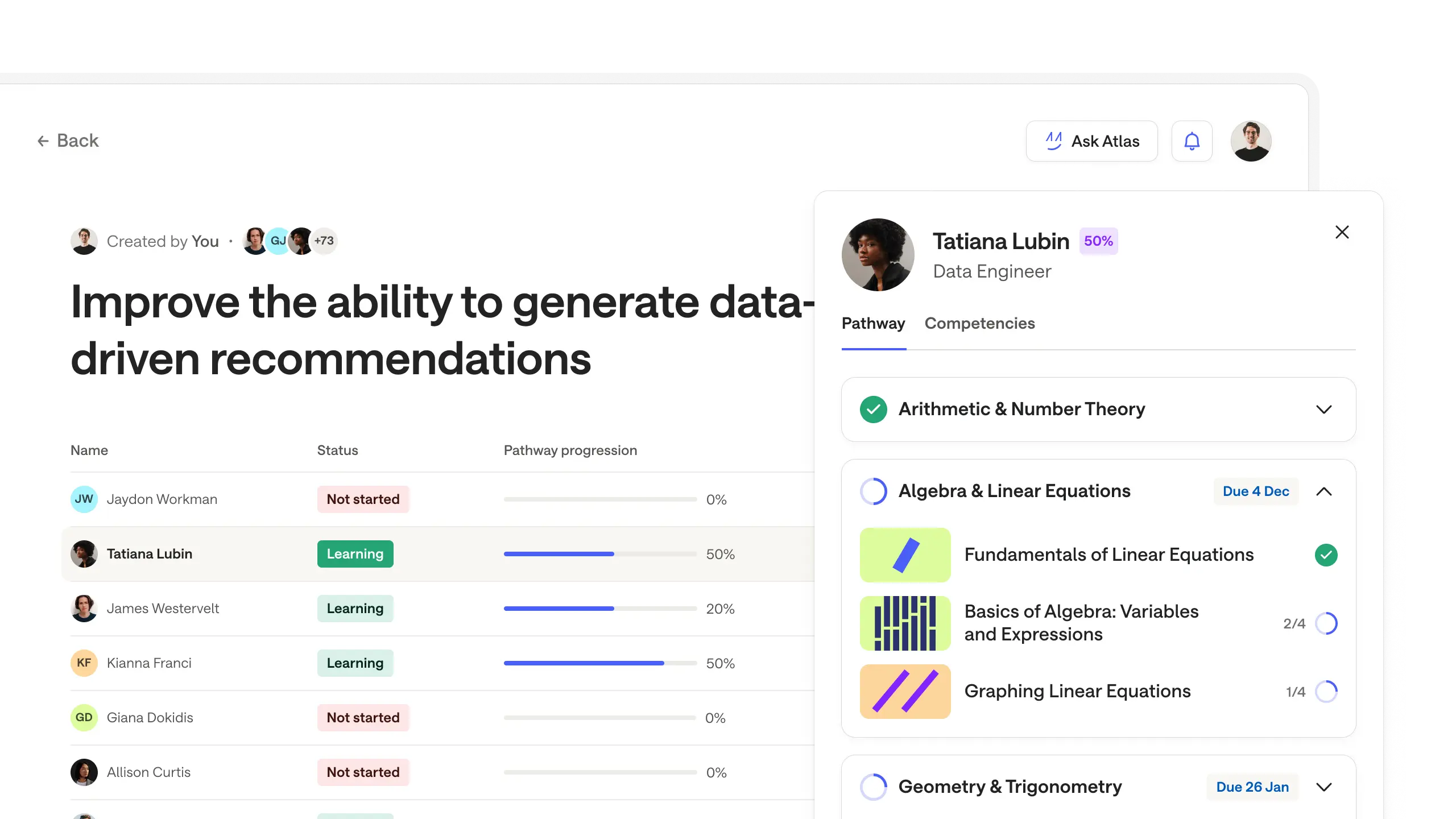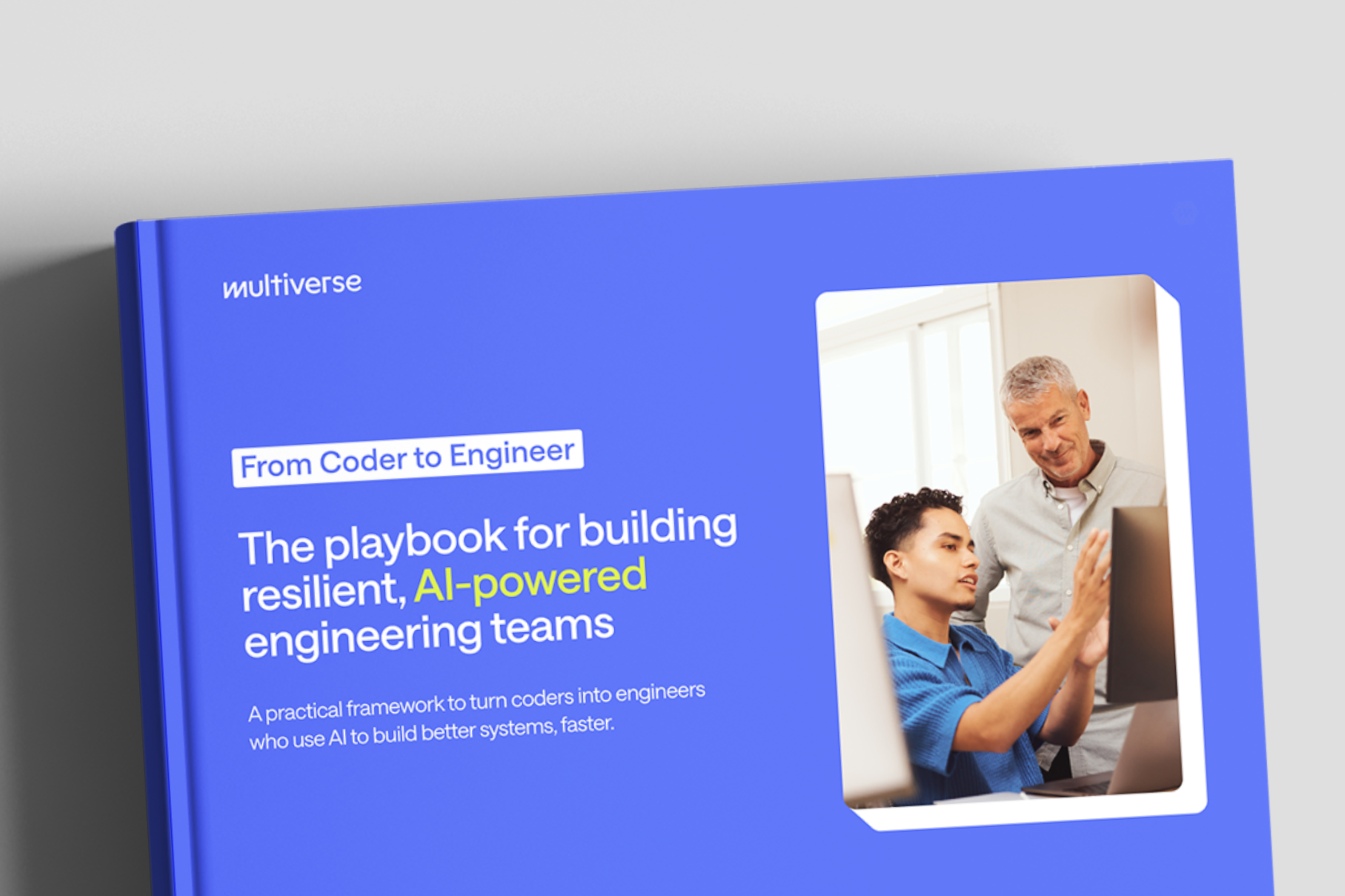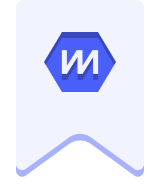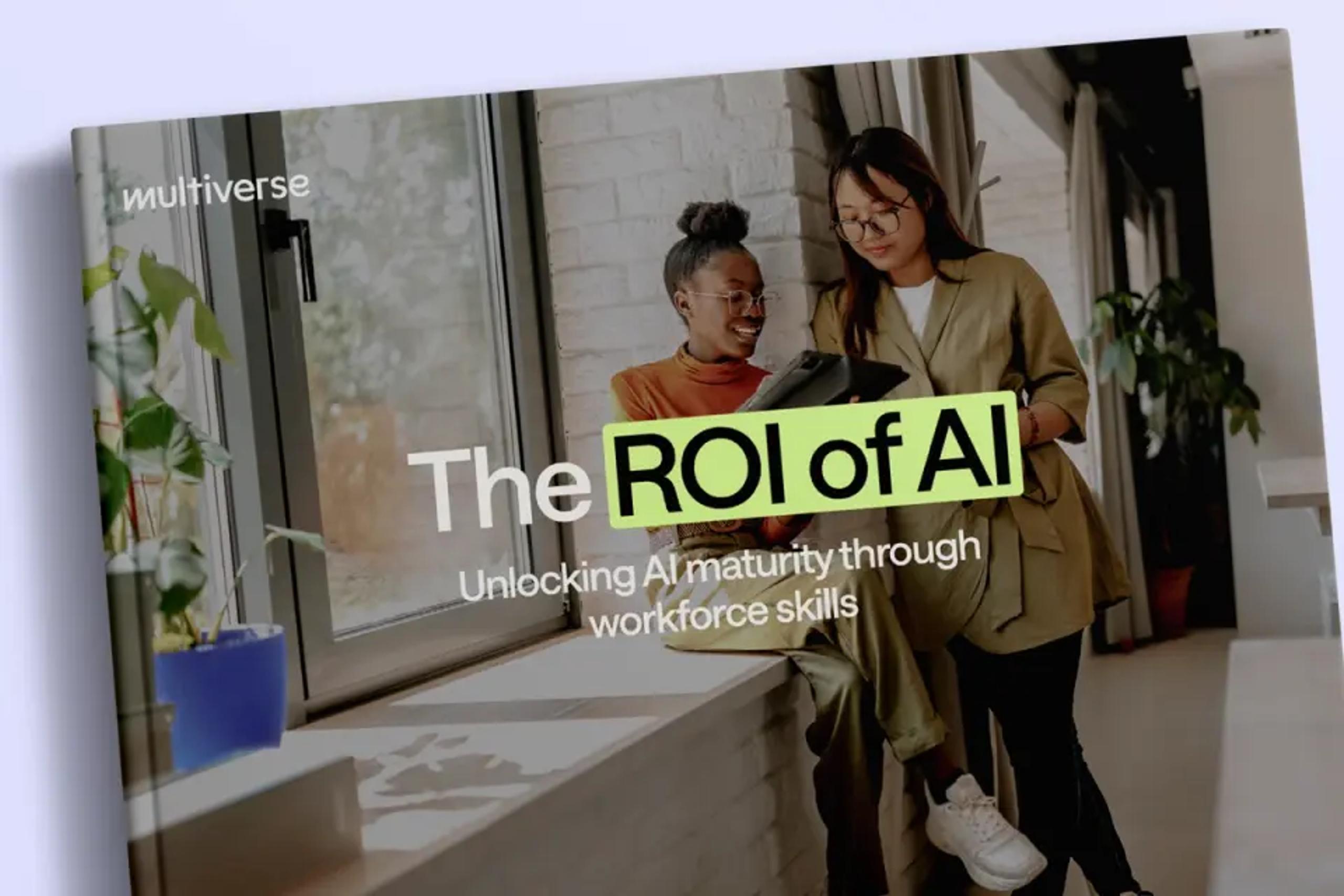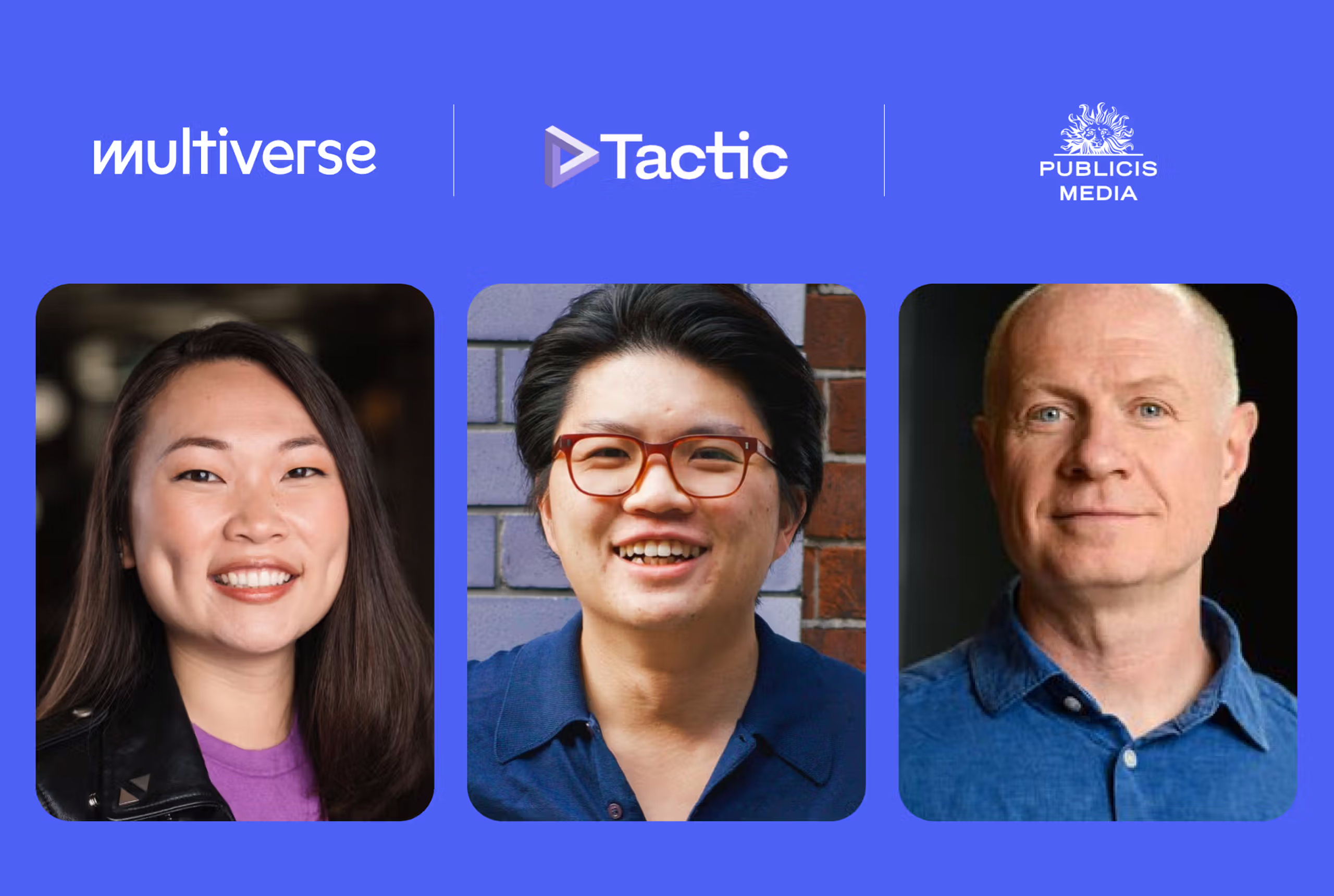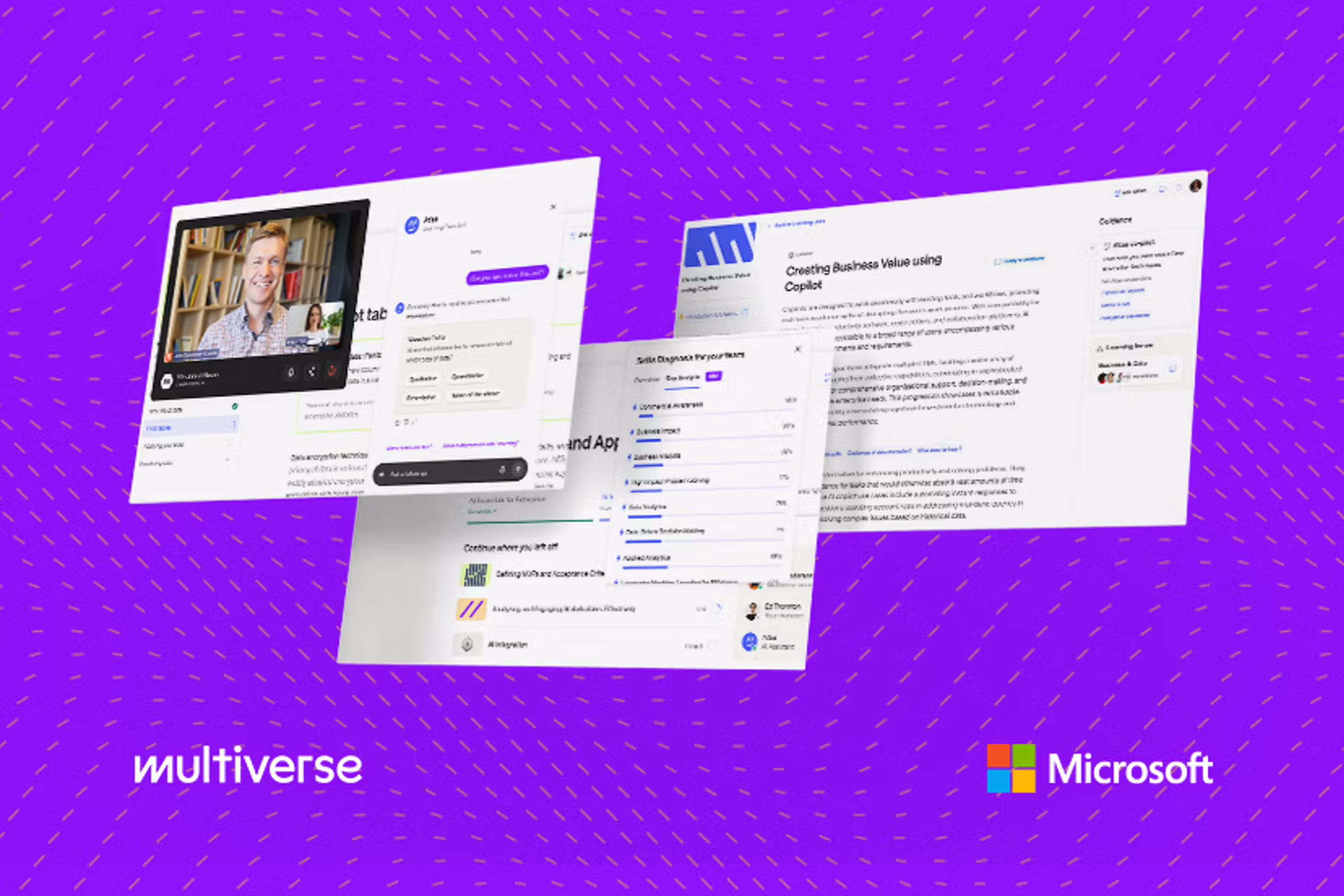Upskill your team. Accelerate AI adoption.
Transform AI into your competitive advantage
Trusted by teams at






The upskilling platform for AI and tech adoption
Get an expert assessment of your business goals and employee skillsets.
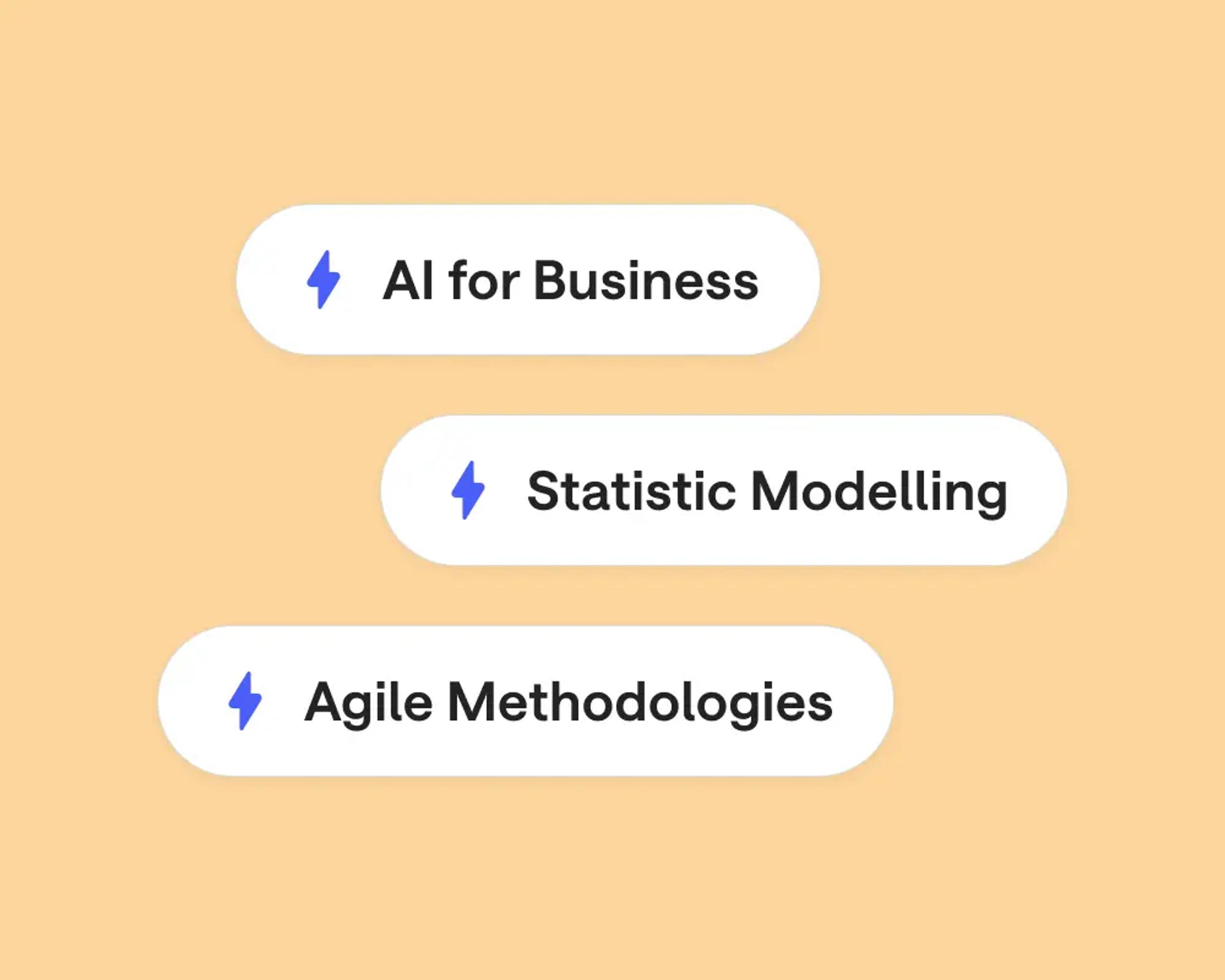

Last year we trained the most AI and data apprentices in the UK
1,500+
companies across the UK & US trust Multiverse
22,000+
learners across our AI, data and tech programmes
£2 billion
tracked return-on-investment for our customers to date

Watch now
04:56
2025 Summer Release
This summer, we’re introducing Guided. New programmes, platform features and enhanced coaching to guide your team to success in the AI era.
One platform for you and your team.
Business impact you can measure
Track quantifiable return on learning investment through business efficiencies, productivity and cost-savings.
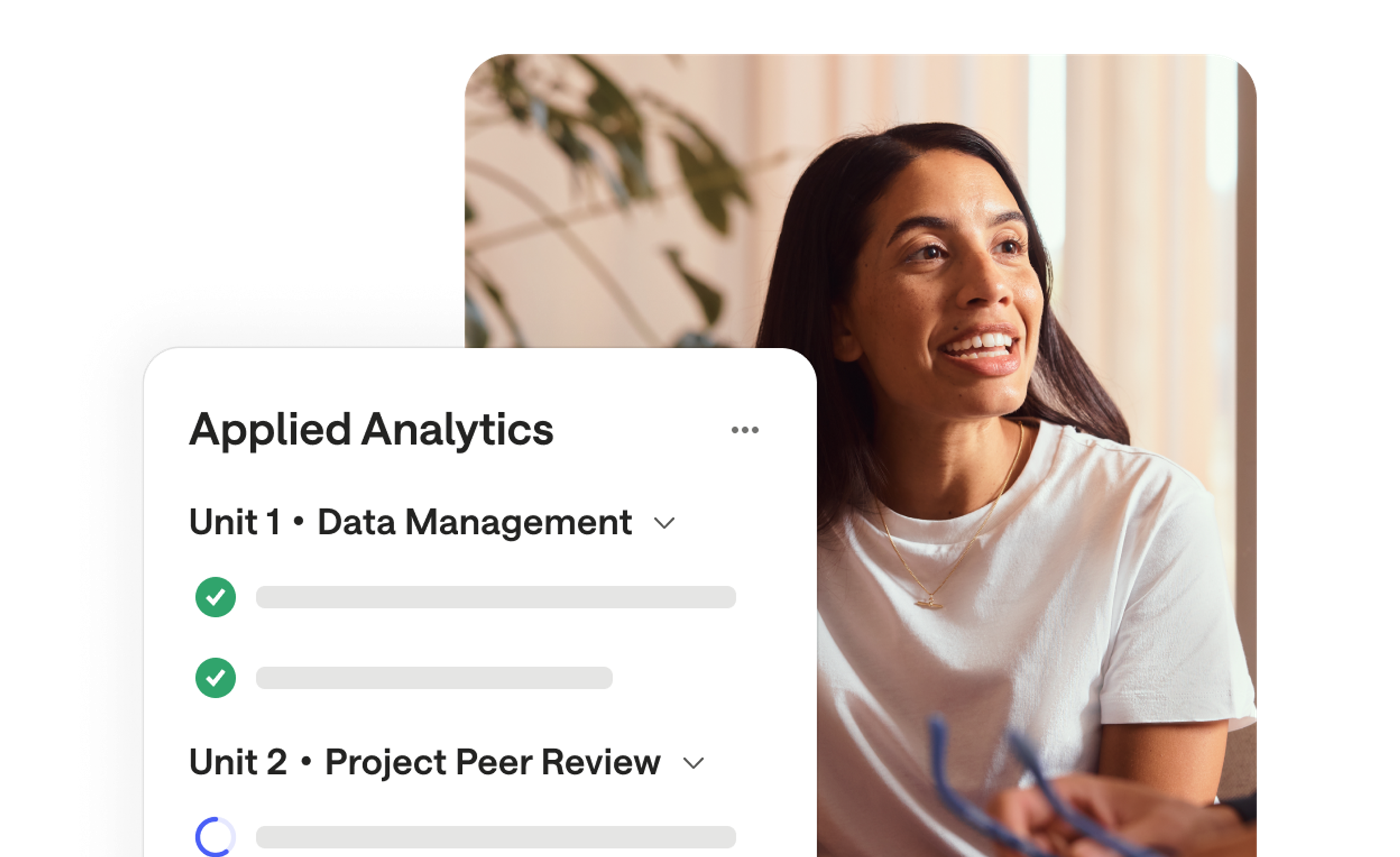
On-the-job learning
Apprentices learn in a real-world business setting, tailored to each individual and organisation.
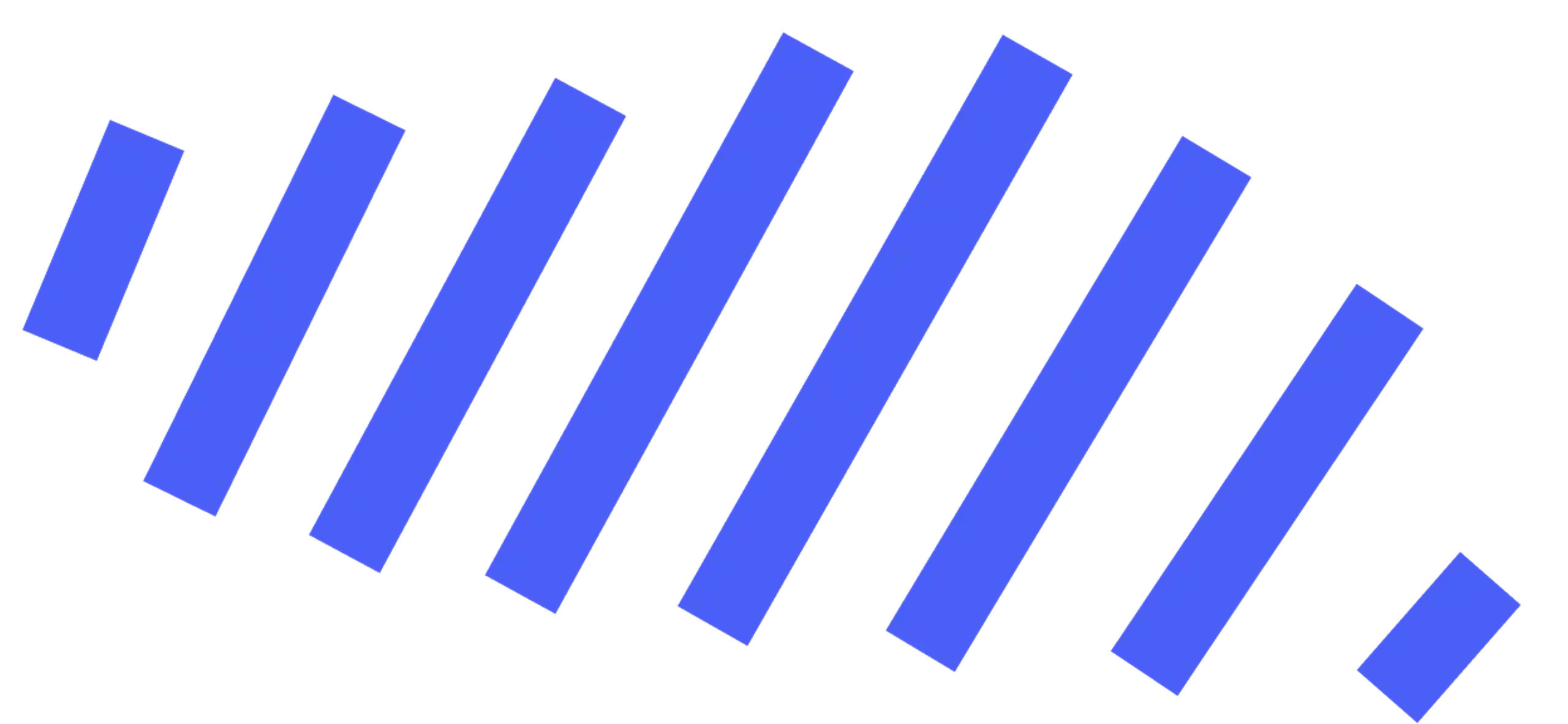
Expert-guided, AI-powered human coaching
An ecosystem of human and AI support means that learners are guided to success in their upskilling journey.
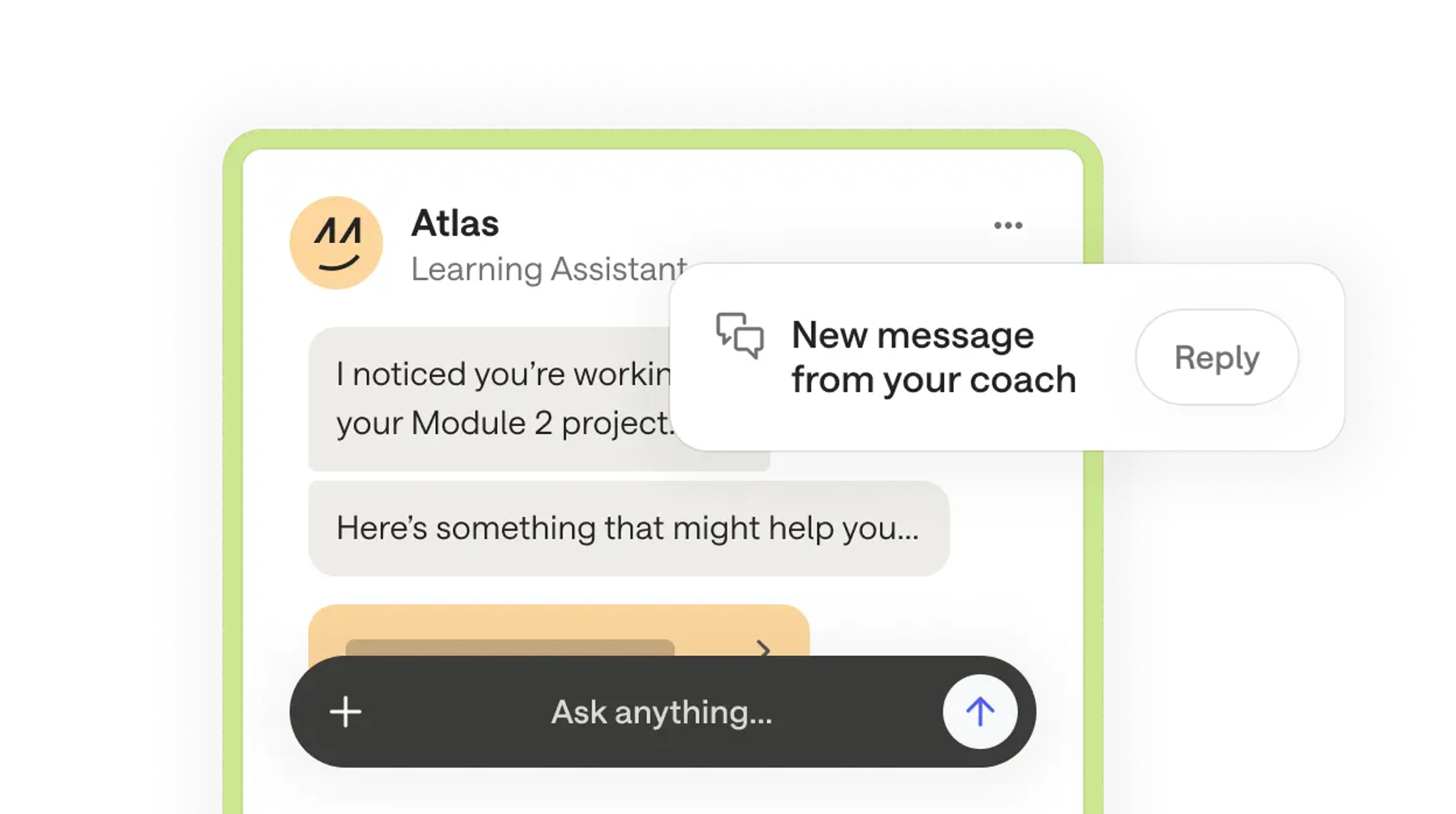
Transform careers
Everyone in your team has future-focused potential and deserves equitable access to economic opportunity.
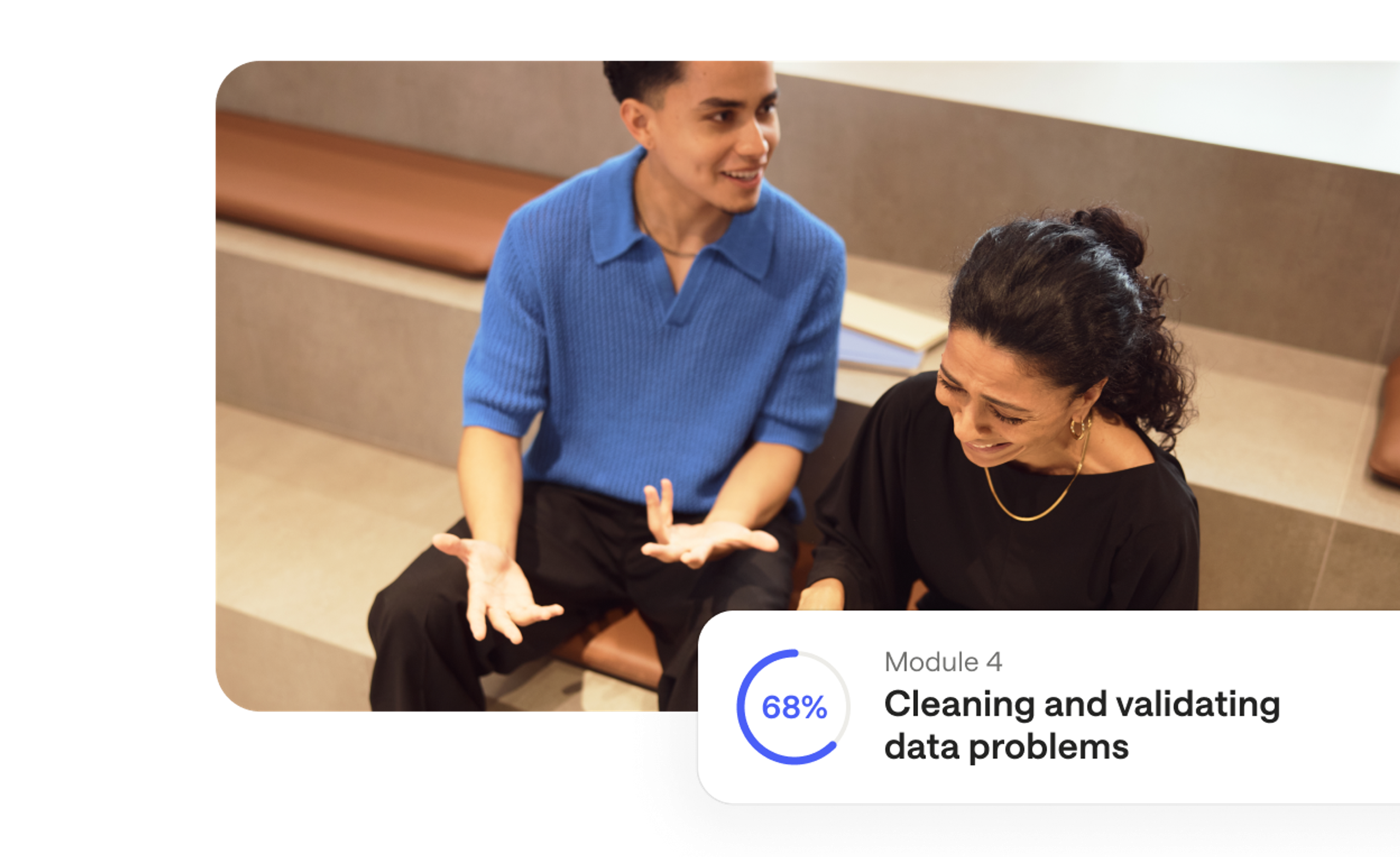
Popular programmes
Power upskilling and tool adoption at every level of your organisation.
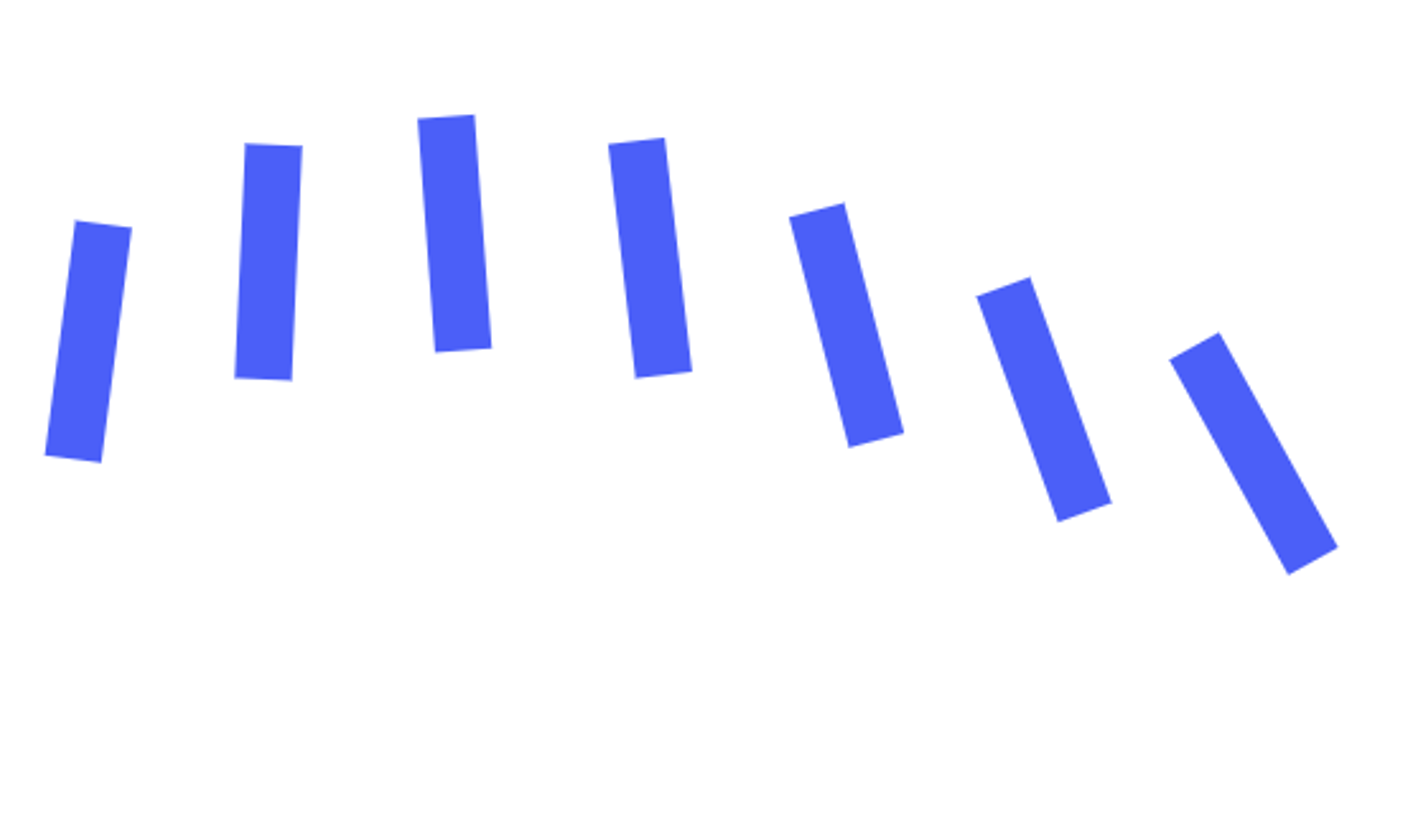
Explore all programmes
Discover our full range to find the right fit for your goals
How John Lewis Partnership stays one step ahead with data.
Discover how an iconic retailer transformed data capability and gave employees new confidence.
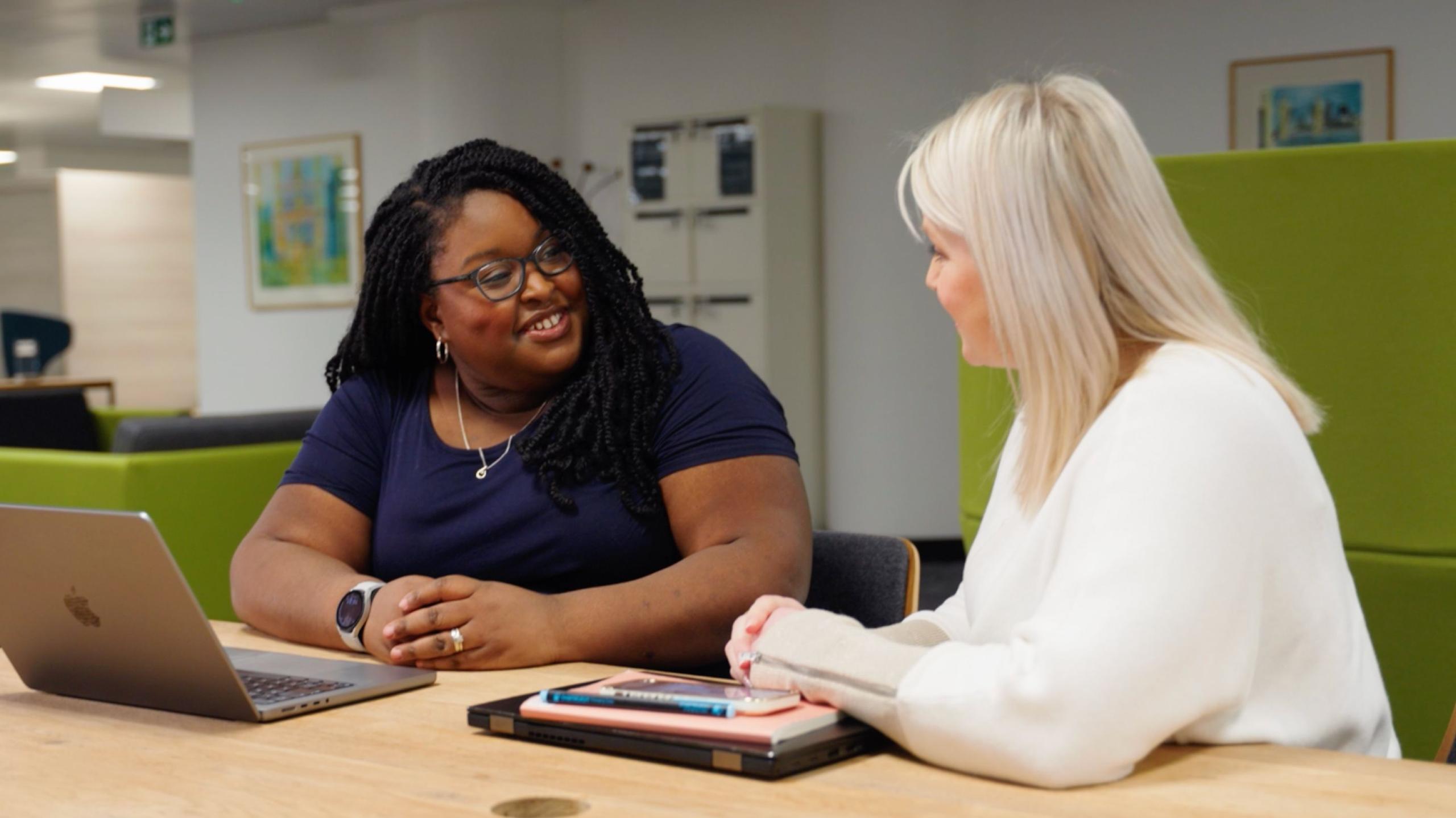
John Lewis Partnership03:21
Highlights
- Enabling efficiency with data
- Staying ahead of skills gaps
- Unlocking ROI from skills
